Submitted by WA Contents
US Pavilion built monumental wood framing structure at the 2021 Venice Architecture Biennale
Italy Architecture News - May 21, 2021 - 10:20 7100 views
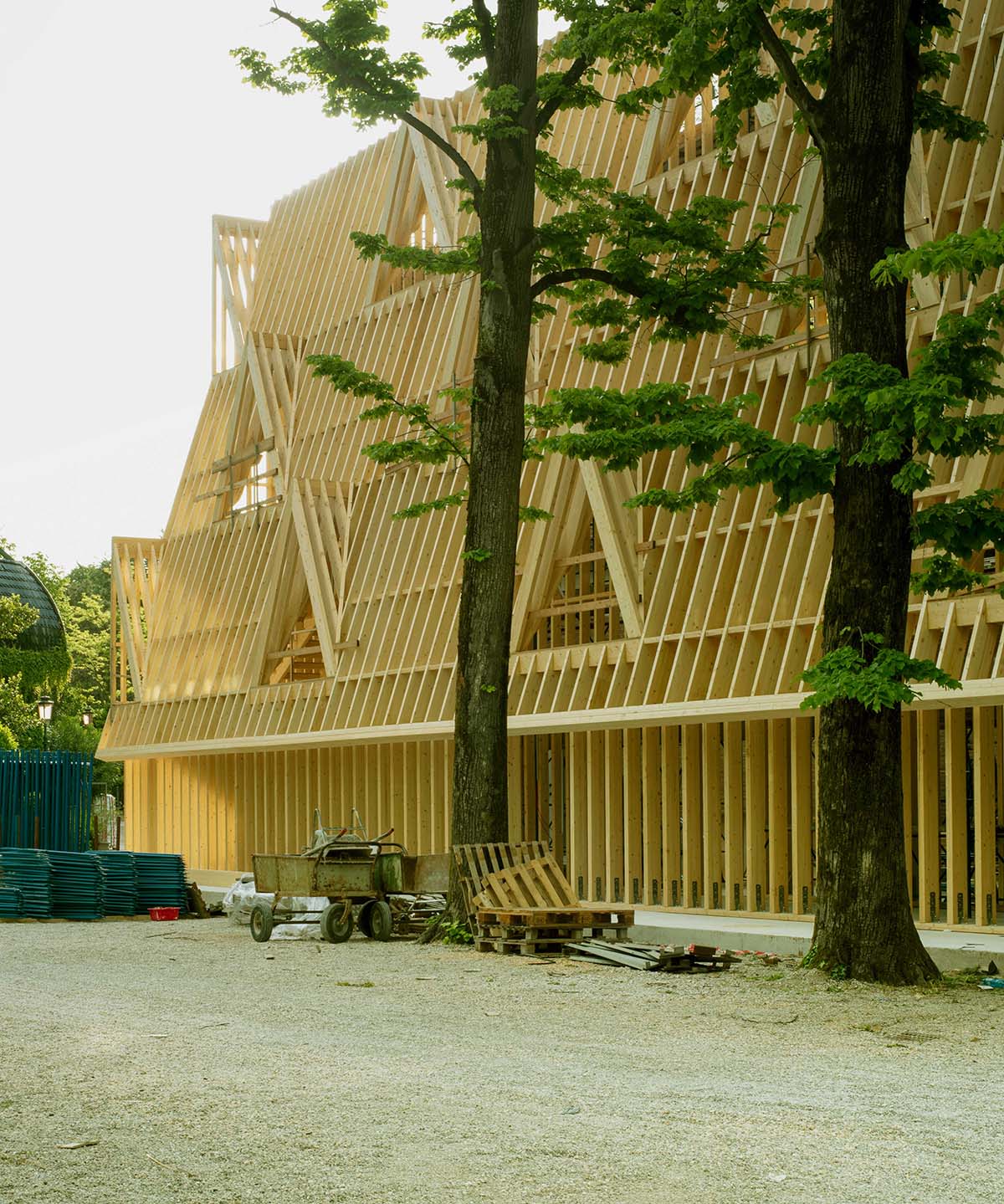
The US Pavilion has built a monumental wood framing structure at the 2021 Venice Architecture Biennale to look back at the history of wood as an important material in America.
The exhibition, themed as American Framing, is curated by Paul Preissner, who is Associate Professor at the University of Illinois Chicago (UIC) and Paul Andersen, who is Clinical Associate Professor at UIC.
Commissioned by Paul Preissner and presented by the University of Illinois Chicago (UIC), a monumental installation, presented as a full-scale installation, is comprised of a half-section of a wood-framed house, introduces the main theme of pavilion, and forms a new façade for the historic building set around the US Pavilion.
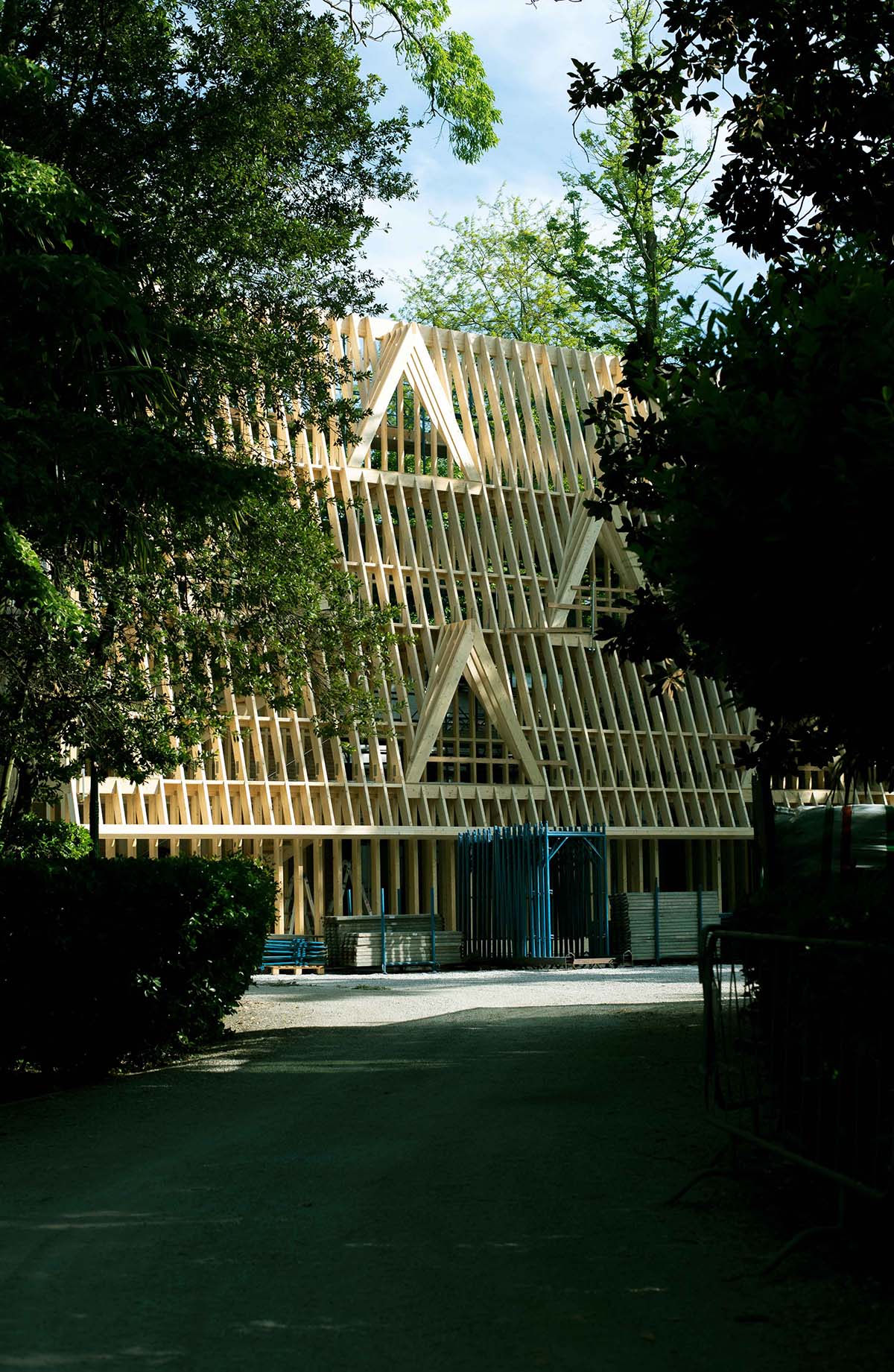
Visitors are welcomed with this wooden framing monumental installation activating the entrance to the neoclassical U.S. Pavilion and inside, visitors see newly commissioned photographs, models, drawings and various scale models that pay attention to the history of wood framing at the galleries of the US Pavilion.
As the Pavilion states, "the exhibition brings attention to an architectural element that has been mostly overlooked by historical and contemporary discourse."
"We want to work with a particularly American theme and open up new possibilities for design. The exhibition looks back at the history of wood framing and speculates on how buildings might be different if we restrain or exaggerate the system itself," said Paul Andersen, U.S. Pavilion Co-Curator.
"We are incredibly honored to represent our country at the Biennale Architettura. As practicing architects and educators, we often explore how ordinary architecture might be a platform for new ideas and discourse."
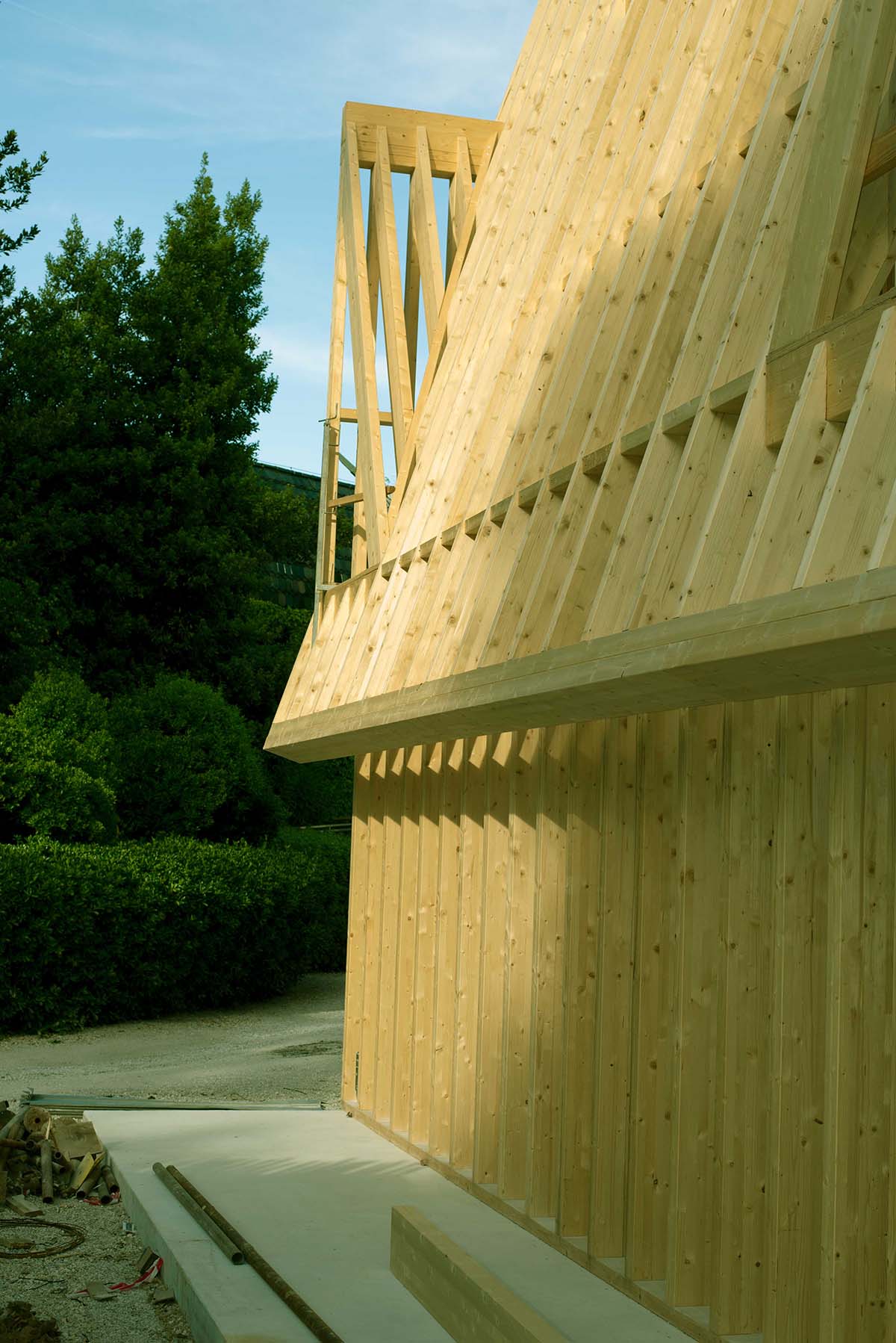
"By committing the entire exhibition to wood framing—the great forgotten basis of American architecture—our presentation at this year’s Biennale elevates an often dismissed or ignored form of construction," said Paul Preissner, U.S. Pavilion Co-Curator and Commissioner.
"As Paul and I were both part of the 2000 U.S. Pavilion as students at our respective universities, we are happy to be able to share this same opportunity with current UIC students and proud to show their work to the world," Preissner added.
The Pavilion's theme "Amerian Framing" focuses on wood-framed construction "as emblematic of American ideology, from its history and culture to its utility and design potential."
"Originating in the early 19th century during the rapid westward expansion of the United States, wood framing was introduced as a pragmatic solution to support infrastructure needs," stated the US Pavilion.
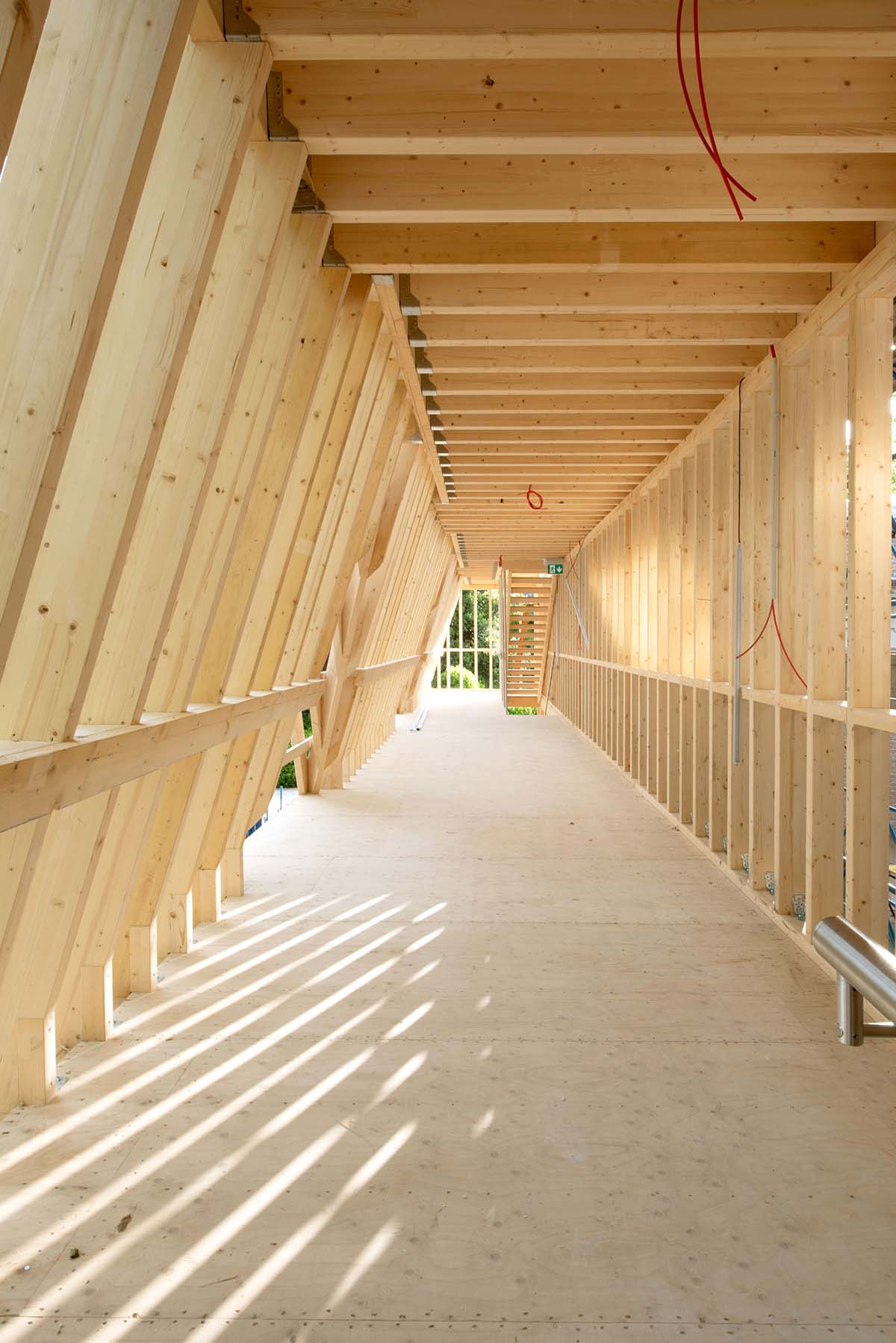
"With abundant forests making wood materials widely available and the simplicity and speed of its construction, wood framing has become a symbol of affordability in American architecture, flattening typological and class distinctions. At the same time, its adaptability offers expansive design potential and continued relevance today."
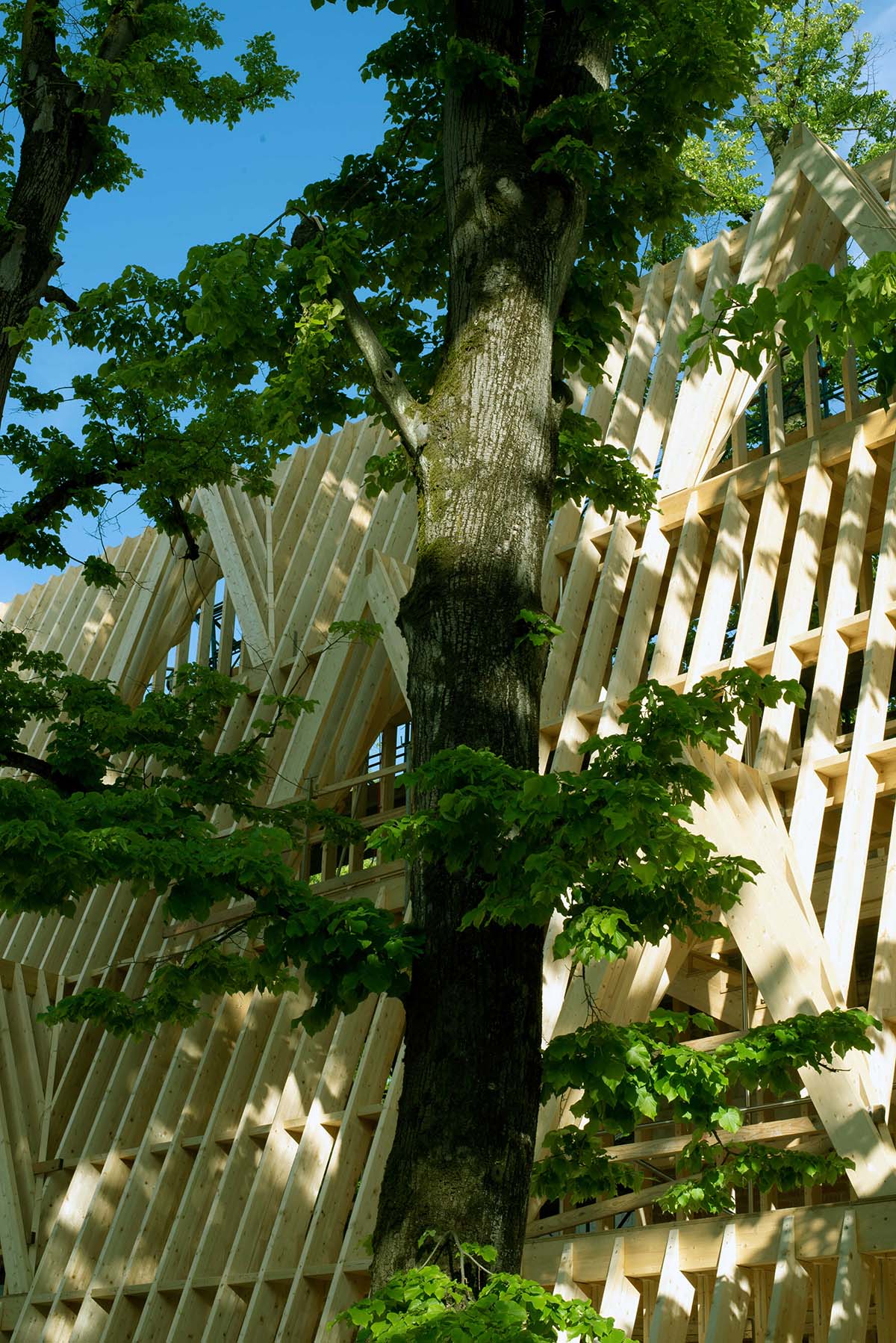
While a monumental wood-framed construction enclosing the Pavilion’s courtyard, thanks to its open-air structure which features a permeable barrier, it allows visitors to see through to the neoclassical Pavilion and requiring them to pass through the installation to enter the exhibition.
"Fully traversable across four floors, the structure invites people to experience the forms and techniques of wood framing firsthand," said the US Pavilion.
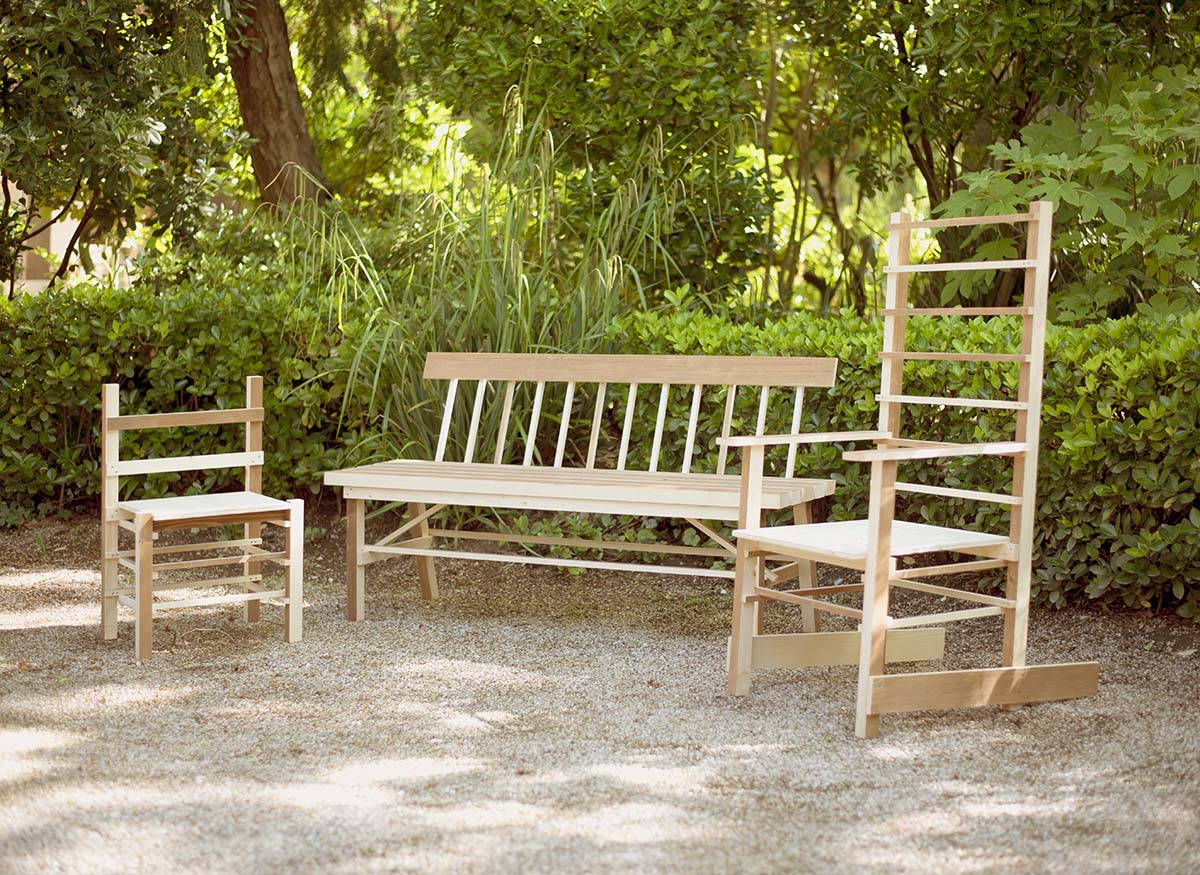
Besides the main structure, the exhibition is interspersed with site-responsive furniture, including chairs, rockers, and benches, designed by UIC students in collaboration with Assistant Professor Thomas Kelley, co-founder of Norman Kelley, and his design partner Carrie Norman.
The courtyard of the U.S. Pavilion is also punctuated with benches collaboratively designed by UIC students and Clinical Assistant Professor Ania Jaworska. Drawing influences from distinctive American designs, such as Shaker furniture and Gerrit Rietveld’s Crate Furniture, these works revisit and reimagine historic pieces of furniture in common dimensional lumber.
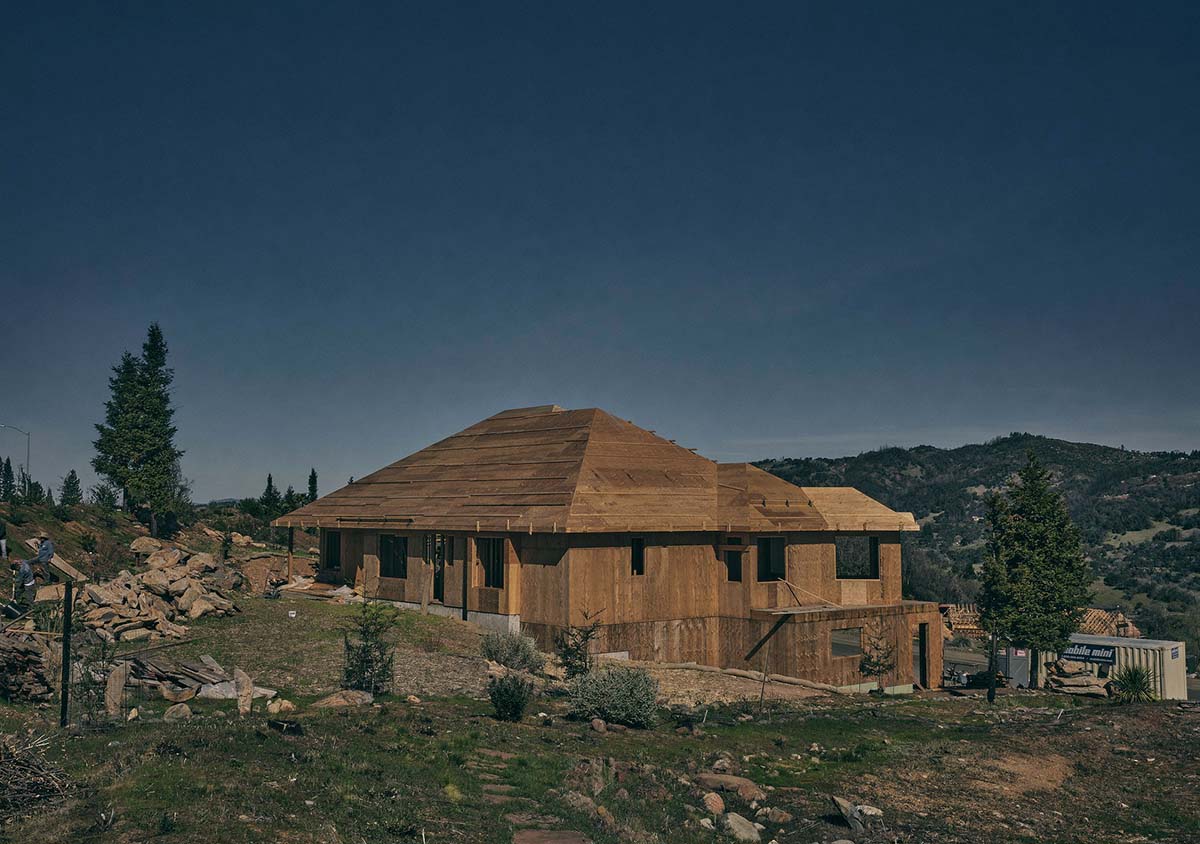
Chris Strong, Untitled, 2021, Archival Pigment Print, Glass, Wood Frame, 19x27”. Photography © Chris Strong.
At the galleries of the US Pavilion, two series of newly commissioned photographs look back at the history of wood constructions that explore the culture surrounding wood framing in the US.
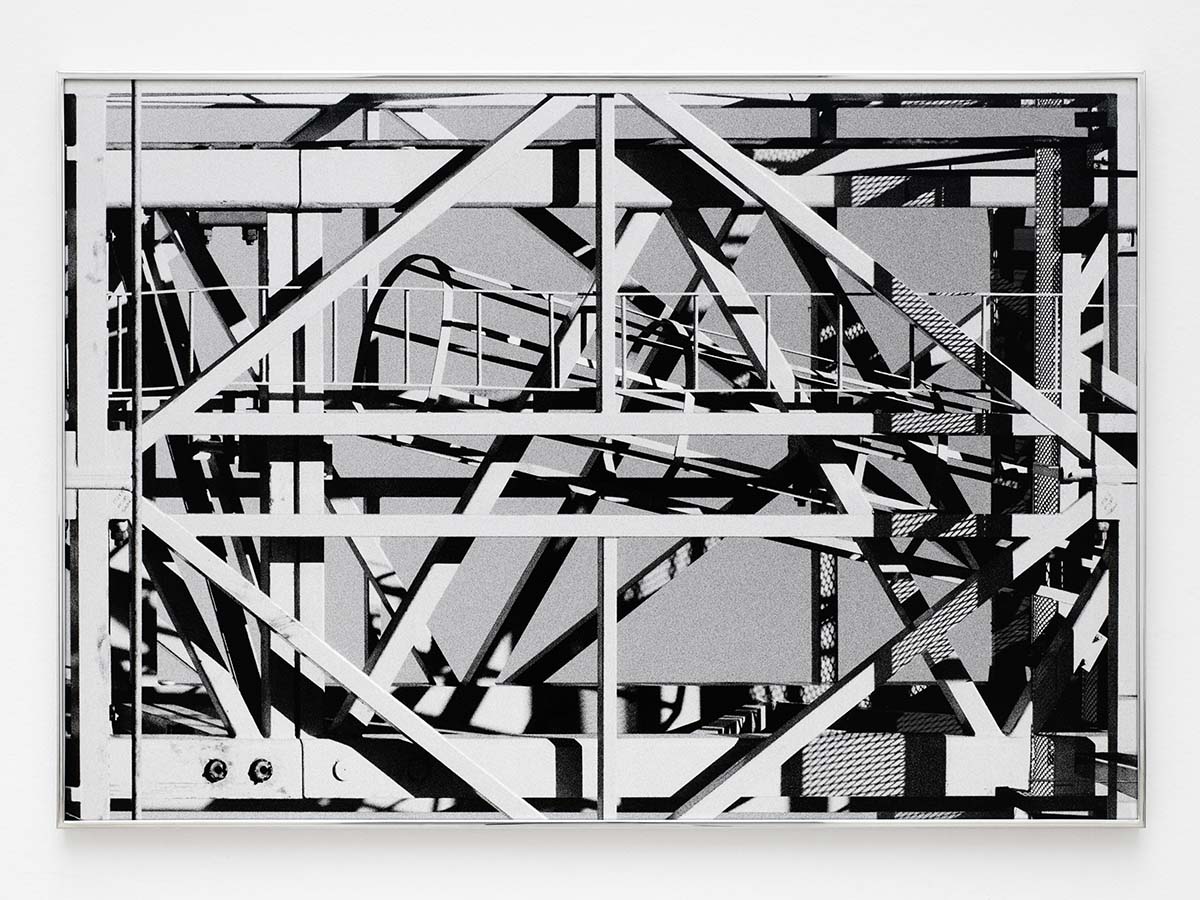
Daniel Shea, Untitled, 2021, Archival Pigment Print, Glass, Aluminum Frame, 26.31x38’’. Photography © Daniel Shea.
Photographer and UIC alumnus Daniel Shea’s commissioned suite of photographs document fir and pine forests where the trees used for lumber grow, capturing the natural environments—spanning Alaska to Texas—from which wood framing originates.
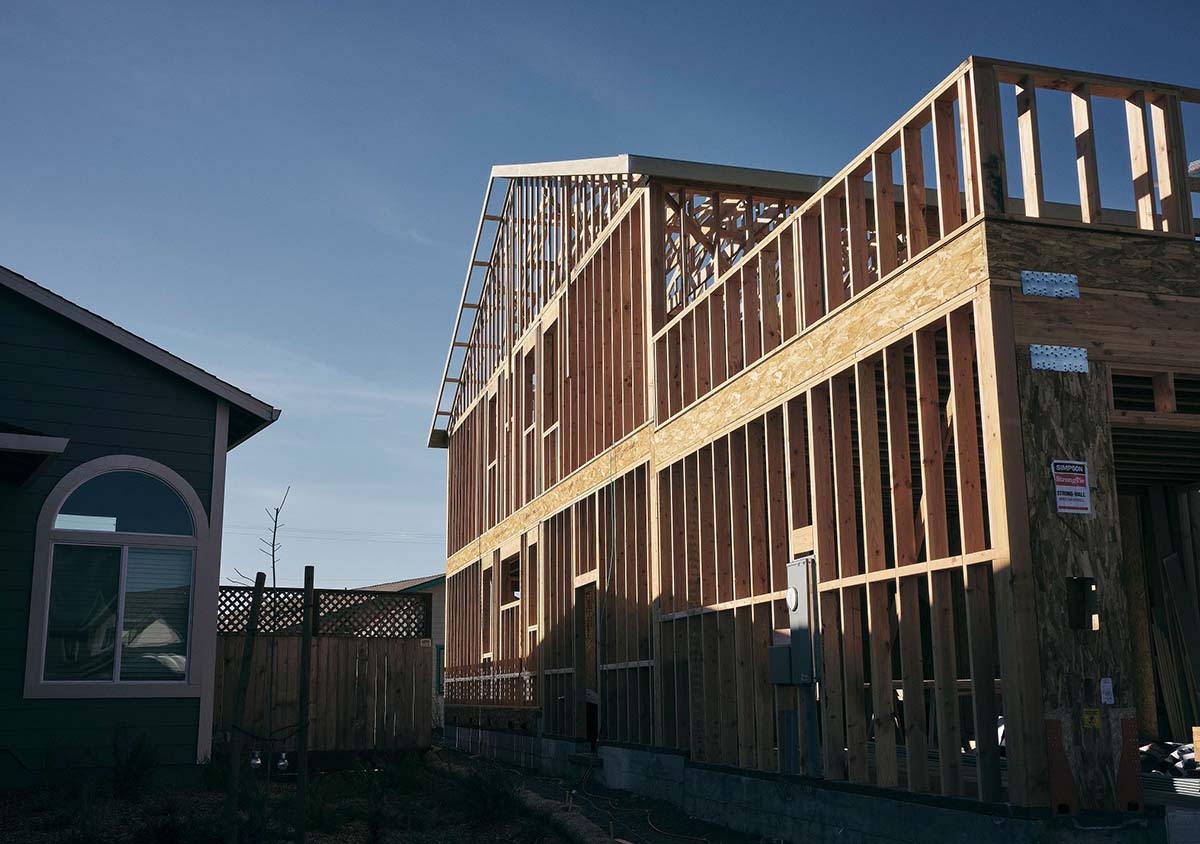
Chris Strong, Untitled, 2021, Archival Pigment Print, Glass, Wood Frame, 19x27”. Photography © Chris Strong.
Chris Strong’s images showcase the full spectrum of labor producing wood-framed construction, from harvesting and preparation of lumber to the building process, and captures both the human faces that make this contemporary industry a reality and their surrounding environments.
Complementing these photographs are scale models designed and built by UIC students during seminars led by Preissner and Andersen.
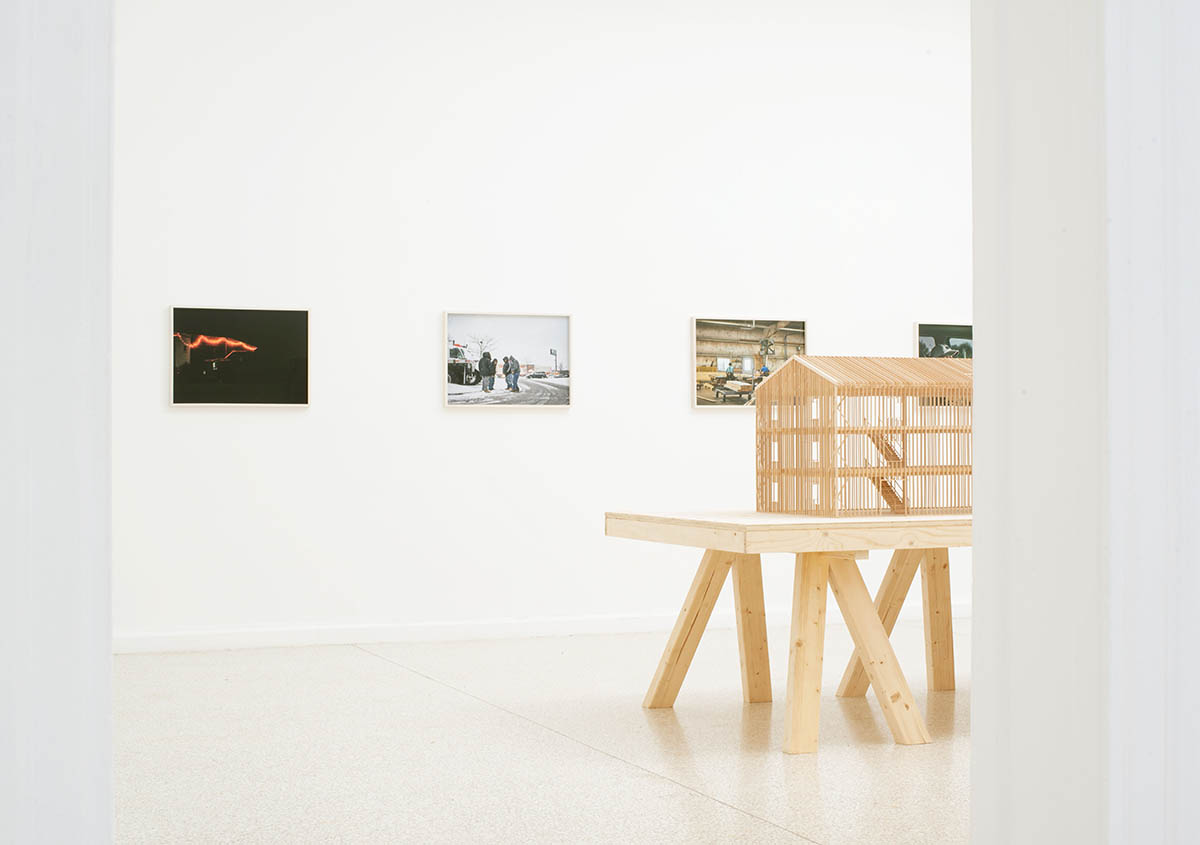
Snow Warehouse, 25” x 50” x 22 1/2”, designed by University of Illinois Chicago participating students for the United States Pavilion at the 17th International Architecture Exhibition at La Biennale di Venezia.
Nine models trace the history of wood framing from its early development through various social and cultural moments in the 20th century.
Examples of prominent structures replicated in these models include the Sears Hillsboro House, a 1950s mobile home, and refugee cottages from the San Francisco earthquakes in 1906, among others.
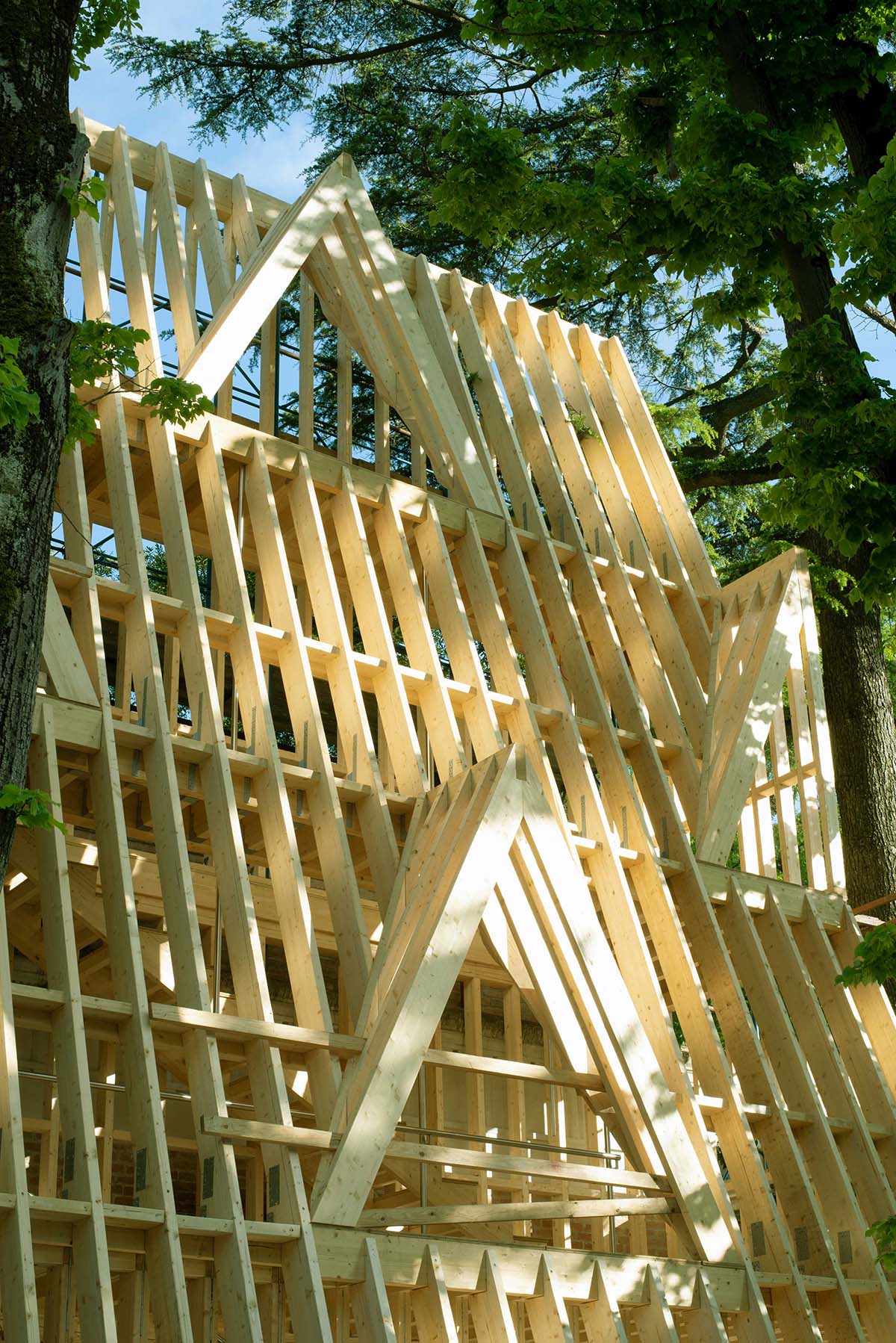
"Collaborating with Paul Andersen and Paul Preissner to bring the 2021 U.S. Pavilion to life is an unparalleled opportunity to not only showcase the breadth and depth of our faculty and alumni talent, but also to provide our students with hands-on experience through their contributions to the fabrication of models and furniture design," said Rebecca Rugg, Dean of the College of Architecture, Design, and the Arts at the University of Illinois Chicago.
The 17th International Architecture Exhibition in Venice will open to the public on 22 May 2021. The exhibition will be on view till 21 November 2021.
This year’s architecture biennale is themed as "How will we live together?" by the curator Hashim Sarkis, the theme explores a widening context that helps architects to "imagine spaces in which we can generously live together".
All images © Paul Andersen and Paul Preissner unless otherwise stated.
